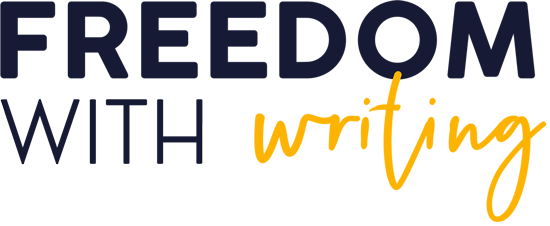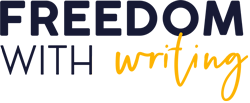By Viney Kirpal
When I returned from hospital in January 2019, I was nearing 70. I stopped working 9 to 5 to focus on my health. After a 48-year-old career, this was a major decision because I’m not one of those who can laze around for long. I had to find myself a meaningful vocation which I could pursue from home.
I’d been an academic for 25 years, a corporate coach and trainer for another 15 years and had headed a non-profit since 2002. What next?
As a 10-year-old, I’d dreamt of becoming a writer. It seemed the perfect choice in my golden years. The idea of describing myself as a writer appeared glamorous!
I’d written before to meet professional requirements and published books and articles in refereed journals. My contributions as a freelancer had been desultory for lack of time. Now I wanted to freelance with fresh determination.
I set up a schedule to write daily for four hours and loved every minute of my new profession. As more and more ideas came to me, I penned an article, even two in a day. Then, to my dismay, I discovered, there weren’t many publications in English in my country (India) where I could gain a foothold, being a late-comer.
I Googled and found hundreds of foreign magazines and websites for freelancers. Overjoyed, I planned to publish in them. That was easier said than done, but more of that later.
As I scoured the internet for names of publications, I got invitations to subscribe to newsletters/websites that assist aspiring writers. I signed for a few that I felt could help me understand the writers’ market.
Freedom with Writing (FWW) was one of them. It has proved invaluable in my journey as a writer.
What’s unique about FWW is it regularly emails lists of magazines seeking pitches. The information gave me a sense of the magazines which might accept my contributions. FWW briefly provided every magazine’s submission goals, contact details, deadlines and payments offered.
I began submitting my work to top magazines. Sometimes, there was stark silence. At other times, the editor politely wrote to say the essay wasn’t a fit.
Used to writing for the best international research journals, these rejections shocked me and undermined my confidence considerably. I wondered if my decision to write for American magazines was a misplaced one. But not being the kind to let go easily, I continued despite the blows to my pride and self worth.
I scaled down my ambition and tried lesser paying publications. That too didn’t work. Then I noticed a web magazine called, You & Me Magazine listed in FWW. It seemed just apt for my essay, which was about having lived with two successive chronic diseases for years before I was cured. I was thrilled when it bought my article for $100!
A month later, my first success seemed like a fluke as rejections bombed my inbox mercilessly.
I was facing two major challenges. Sitting in India, I had access only to those articles which were available on the internet; I couldn’t afford to subscribe to publications in rupees before I’d earned anything substantial. The other was the cultural difference between the interests of readers here and there.
It was obvious I’d have to learn how to write for these publications. I enrolled for free online writing courses. The famous journalist, Amy Paturel’s lessons on writing personal essays and award-winning novelist Jerry Jenkins’ practical videos on editing “ferociously” changed the way I wrote.
Then in May 2020 came Jacob Jans’ and Ian Chandler’s Writing Launch course for freelancers. I requested they permit me to attend for a free month, as I couldn’t afford the fee. He agreed, and I poured over every lesson.
I learnt the following lessons from the course, which I carry in my head every time I write:
Ian Chandler’s pitch template, a brief, self-explanatory, 70-word email to query editors, is good to sell stories. Here’s my pitch to One Village, a new digital platform for supporting cancer patients/survivors which was seeking contributions, according to FWW:
Hi X:
Greetings and congratulations! My good wishes to you at the launch of a useful magazine.
As a third-stage breast cancer survivor for the last 13 years, I want to pitch you a research-based personal essay on how I adopted food as medicine to complement the usual treatment of cancer and fight the disease. I will speak of my initial depression and despair when I discovered I had cancer, how I overcame those emotions, and gave food a chance to help me return to health. Readers will find the approach useful.
Please let me know if the idea works for you.
I’m a published writer undergoing certification in health-writing. My two recent health articles are available in Reader’s Digest, “How Prepared Are you For your Doctor’s Visit?” and “When God’s Angels Fail” in You& Me Magazine.
I thank you for your consideration and hope to hear from you early.
Best wishes once again for the success of your magazine.
Viney
A week later, I received a contract from the editor, and was paid $150.
My second learning from the course was to develop a niche and sub-niches. I opted for health and wellness writing and personal essays and sought certification from Michelle Guillemard, who tutored and mentored me under her Introductory Health Hub course. This has been a life-changing decision because health/wellness and personal essays are niches unconstrained by cultural differences.
The third lesson the Writing Launch course taught me was: Never write for publications that pay meager amounts. I negotiate and get the rate that my work deserves. I’m delighted to say editors have been rather nice.
The advice on earning a higher rate has to do it with placing a value on one’s work, being professional, honoring deadlines, following submission guidelines, and always delivering quality.
In February 2021, my essays found room in Cure Today and in May in HuffPost.com. They paid me between $200 and $500.
Have I arrived at publishing in well-paying publications? No, I still face rejections for different reasons, not necessarily because my pitch is not suitable for the publication. These are:
-
-
- Editors have their own preferred set of established contributors to write for their publication and maintain standards and disallow unsolicited pitches..
- Many publications are open only to nationals. I’ve begun writing to them and seeking clarification before pitching them.
- Editors are weighted under pitches. They could miss our pitch.
- Editors admit their selections are often subjective.
- The scene is very competitive.
-
It’s futile to take rejections to heart.
Rejections spur me to work harder to get them published elsewhere. If I persist, I’ll get the momentum I long for. Established writers have toiled for years to make a place; I’m only a starter in comparison and can patiently wait my turn.

